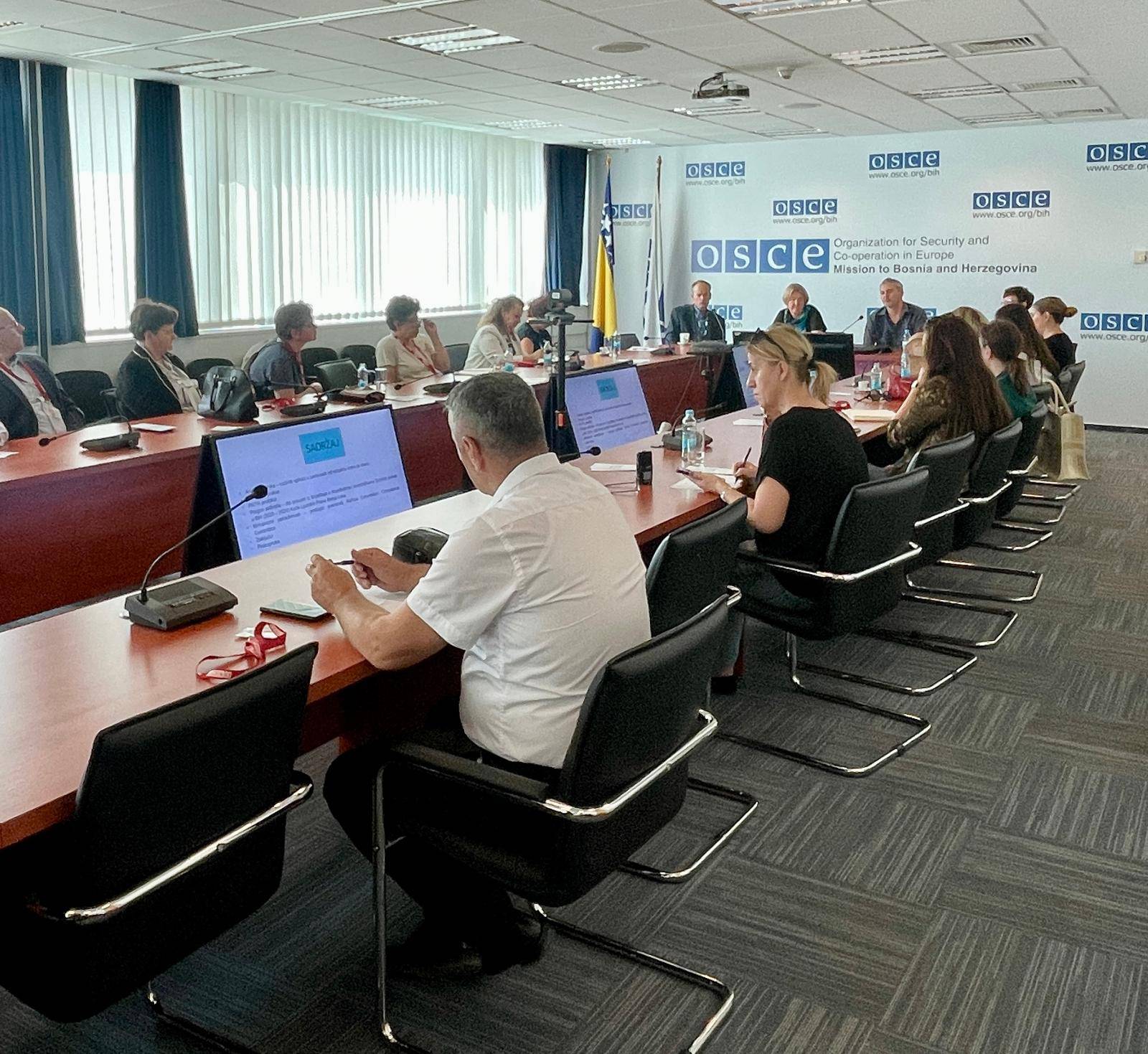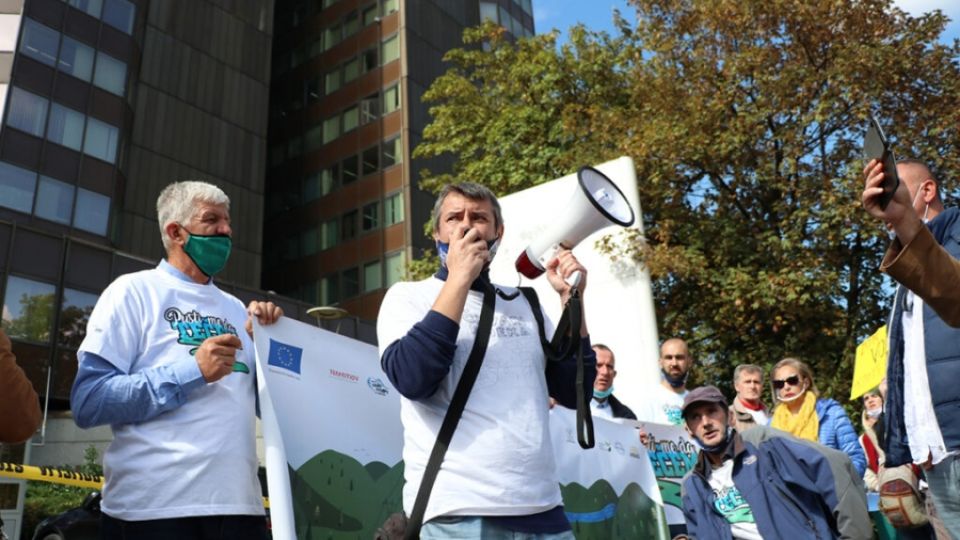BANJA LUKA / SARAJEVO – Environmental organizations emphasize that the state of environmental democracy in Bosnia and Herzegovina has improved since the ratification of the Aarhus Convention compared to the previous reporting period. However, the progress remains insufficient for the full realization of environmental rights for the citizens of Bosnia and Herzegovina. In most local communities across the country, citizens still lack adequate access to information about the state of the environment and face significant obstacles when trying to exercise all three pillars of the Aarhus Convention.
This is the main conclusion of the Shadow Report on the Implementation of the Aarhus Convention[1] currently being prepared ahead of the 8th Meeting of the Parties to the Convention, scheduled for November this year. The report is a collaborative effort of the Center for Environment (BiH), Aarhus Center in BiH (BiH), and the Center Dr. Stjepan Bolkay (BiH), in partnership with the Czech NGO Arnika. The main findings of the report were presented at roundtable discussions in Banja Luka on June 3rd and in Sarajevo on June 9th, supported by the Organisation for Security and Co-operation in Europe (OSCE) Mission to BiH.
Shadow Reports on the implementation of the Aarhus Convention are developed by civil society organisations (NGOs) that are directly involved in monitoring and advocating for the practical enforcement of the Convention’s principles: the right to access information about the environment, the right to participate in environmental decision-making, and the right to access justice to challenge public decisions that affect the environment. These fundamental environmental rights empower communities to be informed, have a say in projects and policies that impact their surroundings, and seek legal remedies when those rights are violated.
Unlike the official National Implementation Report, the Shadow Report does not aim to duplicate government-provided information. “Civil society has direct access to specific cases, legal procedures, and affected communities, which gives these organisations a unique and grounded understanding of how access to information, public participation, and access to justice function — or fail to function — in practice” explains Zuzana Vachůnová from Arnika, highlighting the importance of Shadow Reports.
As highlighted in the currently presented report, the Aarhus Convention is not properly or fully implemented in Bosnia and Herzegovina, which means that despite these protections existing on paper, people often face significant barriers when trying to exercise their rights in practice.
“Between 2021 and 2024, there was a noticeable improvement in the communication between information requesters and providers, resulting in information generally being delivered more regularly. Overall, this progress has contributed to a decrease in the number of court cases initiated. However, some institutions continue to ignore requests or refuse to provide information, often justifying this by citing the protection of third-party interests," explains the main author of the report, Ratko Pilipović from Center for Environment (BiH).
He further describes that the relevant authorities often misinterpret and misapply legal exemptions, and the public interest test is inadequately conducted. “Projects are often declared to be in the public interest despite not all relevant information being accessible to the public. Additionally, decisions by government bodies further restrict the civil sector’s activities, limiting the public’s ability to fully exercise the three pillars of the Aarhus Convention: access to information, public participation, and access to justice.” adds Pilipović.
 A conference with representatives of the NGOs and BiH authorities, discussing the Aarhus shadow report on June 9 in Sarajevo. PHOTO Marie Černá, Arnika
A conference with representatives of the NGOs and BiH authorities, discussing the Aarhus shadow report on June 9 in Sarajevo. PHOTO Marie Černá, Arnika
The authors of the report emphasize that the shrinking space for civil society is a key factor contributing to the alarming decline in environmental democracy. To address this, they recommend enhancing public education on environmental rights and strengthening cooperation between civil society, inspection bodies, and executive authorities. This collaboration should include the active involvement of Bosnia and Herzegovina’s Aarhus Convention Focal Point to ensure more transparent, inclusive, and accountable environmental governance.
"The preparation of the Shadow Report on the implementation of the Aarhus Convention represents a key contribution to monitoring the actual application of the Convention in Bosnia and Herzegovina, as it enables an independent assessment of the state of access to information, public participation in decision-making, and access to justice in environmental matters, while highlighting key challenges, institutional weaknesses, and specific cases of citizens' rights violations, with the aim of promoting transparency, accountability, and the rule of law in the field of environmental protection" concludes the co-author of the report Nina Kreševljaković from the Association Aarhus Center in BiH.
 Notes
Notes
[1] The Aarhus Convention (formally, the Convention on Access to Information, Public Participation in Decision-making and Access to Justice in Environmental Matters) is a United Nations treaty that grants the public rights regarding access to environmental information, participation in environmental decision-making, and access to justice in environmental matters. It was adopted in Aarhus, Denmark, in 1998 and is legally binding for its parties. Go back up
Contacts for additional information:
Ratko Pilipović (Center for Environment): This email address is being protected from spambots. You need JavaScript enabled to view it.; + 387 65 670 388
Nina Kresevljaković (Aarhus Center in BiH): This email address is being protected from spambots. You need JavaScript enabled to view it.; +387 62 616 326
Zuzana Vachůnová (Arnika): This email address is being protected from spambots. You need JavaScript enabled to view it.; + 420 604 360 199







